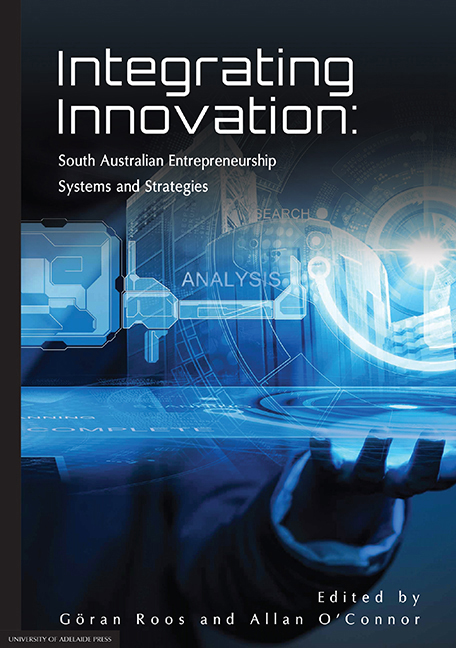Book contents
- Frontmatter
- Contents
- Chapter Abstracts
- Notes on Contributors
- Foreword
- Introduction
- Part 1 Regional-level perspectives
- Part 2 Firm-level perspectives
- 5 Do clusters matter to the entrepreneurial process? Deriving a conceptual model from the case study of Yalumba
- 6 Operationalising innovation: Hotwiring the creative organisation
- 7 Business model innovation in nonprofit social enterprises
- Part 3 Innovation management perspectives
- Conclusion
7 - Business model innovation in nonprofit social enterprises
from Part 2 - Firm-level perspectives
Published online by Cambridge University Press: 05 February 2016
- Frontmatter
- Contents
- Chapter Abstracts
- Notes on Contributors
- Foreword
- Introduction
- Part 1 Regional-level perspectives
- Part 2 Firm-level perspectives
- 5 Do clusters matter to the entrepreneurial process? Deriving a conceptual model from the case study of Yalumba
- 6 Operationalising innovation: Hotwiring the creative organisation
- 7 Business model innovation in nonprofit social enterprises
- Part 3 Innovation management perspectives
- Conclusion
Summary
Introduction
Nonprofit social enterprises innovate their business models; however, little is known regarding why they do this, nor what capabilities they need to innovate their revenuegenerating activities. In this qualitative exploratory research, we examined five nonprofit social enterprises in South Australia, and found that these organisations consciously innovate their business models for two key reasons: to remain financially viable, and to expand the delivery of important services to the community. In addition, we identified six capabilities that enable nonprofit social enterprises to support their business model innovation.
The nonprofit sector makes a significant contribution to the Australian economy, and performs functions that government and the private sector are either unwilling or unable to provide (Australian Government, 2010; Salamon, 1993). Recognised as an outcome of social entrepreneurship (Mair & Marti, 2006), social enterprises are part of the nonprofit sector, and adopt business models (Austin, Stevenson, & Wei-Skillern, 2006; di Domenico, Haugh, & Tracey, 2010; Zahra, Gedajlovic, Neubaum, & Shulman, 2009).
Innovation in social entrepreneurship is enacted with the aim of fulfilling a primary social mission to create social value (Weerawardena & Mort, 2006), and also to remain competitive (Weerawardena & Mort, 2012). In response to the growing emergence of social enterprises globally, and the positive social impact these organisations deliver, there are increasing calls for empirical research to investigate the ‘business models’ of social enterprises (Certo & Miller, 2008; Yunus, Moingeon, & Lehmann-Ortega, 2010; Zahra et al., 2009).
Although the relevance of business models for nonprofit social enterprises has been established (Bagnoli & Megali, 2011; Weerawardena & Mort, 2012), and a business model framework for social business has been proposed (Yunus et al., 2010), the mechanisms employed by such enterprises to innovate their business models have not been clarified. This gap in the literature makes it difficult to ascertain which skills or capabilities nonprofit social enterprises must acquire in order to develop and innovate their business models, and to provide guidance to nascent nonprofit social enterprises to increase their chance of organisational survival.
This exploratory qualitative investigation of five nonprofit social enterprises in South Australia seeks firstly to discover why they innovate their business models, and secondly to identify the specific innovation capabilities that enable them to innovate their business models.
- Type
- Chapter
- Information
- Integrating InnovationSouth Australian Entrepreneurship Systems and Strategies, pp. 205 - 232Publisher: The University of Adelaide PressPrint publication year: 2015



